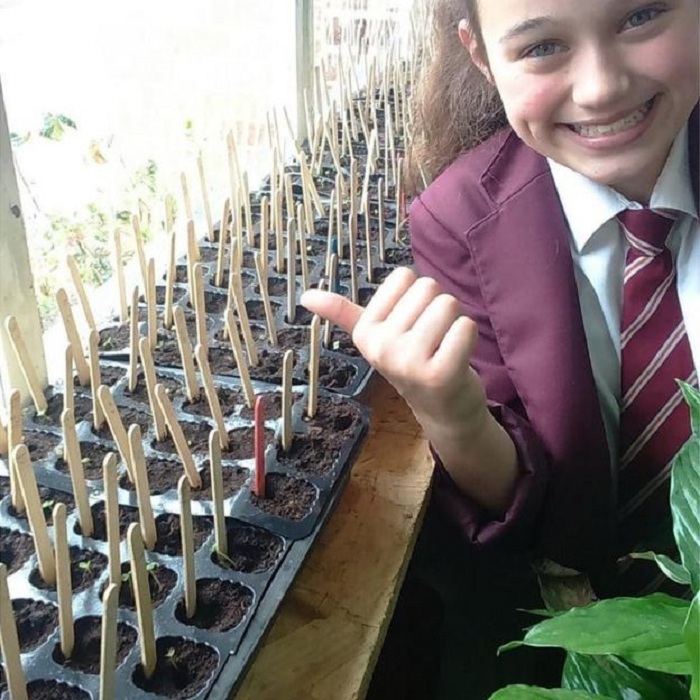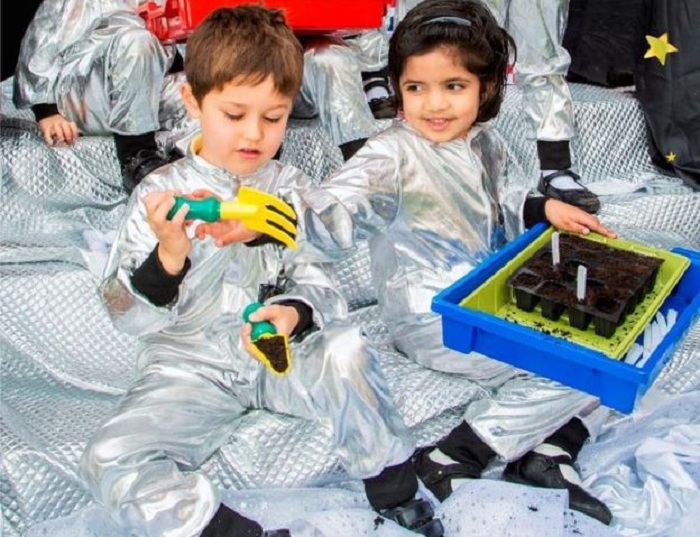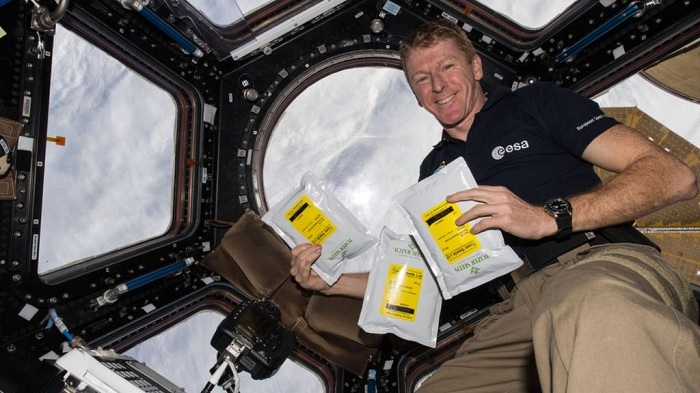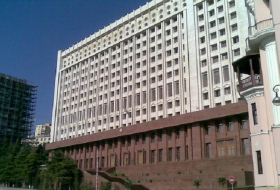It suggests vibrations during launch, temperature fluctuations, cosmic rays and microgravity do not prevent seeds from germinating and growing.
The Royal Horticultural Society and UK Space Agency gave BBC News exclusive access to the results.
Children from 8,600 schools and other children`s organisations such as guide and scout groups as across the UK received seeds appropriately enough of the of the salad plant "rocket" that had been in space for six months.
They grew them alongside rocket seeds which had remained on Earth.
The findings indicated that, on average, the space seeds grew less well than seeds that had remained on Earth - but only very slightly.

On average 4% more Earth seeds germinated 10 days after the seeds were planted. Just over 70% of the plants grown from Earth seeds were alive after 17 days - just slightly more than the plants grown from space seeds - just over 66%.
The results indicate that there has been a slight biological effect on the space seeds.

But according to Dr Hayley Jones, of the RHS, the main conclusion to draw is that rocket seeds - and probably other kinds of seeds that can be grown to provide food for astronauts during long duration missions are resilient to the traumas of spaceflight.
"The results from this experiment provides further support that rocket seeds can be flown and stored on the International Space Station for six months without having any significant impacts on their ability to germinate and grow on Earth.
"Of course, the environment and cultivation conditions are very different in space than on Earth, but this is the first step in knowing that astronauts have the potential to grow their own food for long duration space missions."
According to Sue Biggs, who is the RHS`s director general, the rocket science experiment "celebrates the creativity, curiosity and independent thinking of children and young people across the UK, as well the teachers and leaders who inspire them".
The RHS collected comments sent in by schoolchildren and teachers involved in the experiment. Abi Spray, aged 13, from Cottenham Village College in Cambridge said:
"Through the UK Space Agency, we learnt about scientific methods including randomisation. We like to think that (our school) has helped the growth of human knowledge about space travel and plant biology."
Kiera Atherton, aged 9, from Fairway Primary School, Birmingham told the RHS: "It was really exciting to be in an experiment that no one has done before."
The children`s comments were borne out by teachers involved in the rocket science experiment.
"It gets the children involved in real science that has implications for the future of our planet and its occupants," said John Teasdale, Martongate Primary School, East Riding in Yorkshire.
Rachel Franklin, a teacher at Green Leaf Primary School in Walthamstow, in London, said: "It really has raised the profile and importance of science within school and children who normally wouldn`t have been that interested in this subject have been really enthusiastic.
"It has made lots of girls realise science is fun and relevant and they have seen themselves as real scientists."
More than 320,000 individual measurements were collected - making the experiment scientifically robust and one of the most detailed of its kind ever carried out.
The results will be useful to scientists trying to find ways of growing food in space.
















-1741770194.jpg&h=190&w=280&zc=1&q=100)






-1741765030.jpg&h=190&w=280&zc=1&q=100)
























